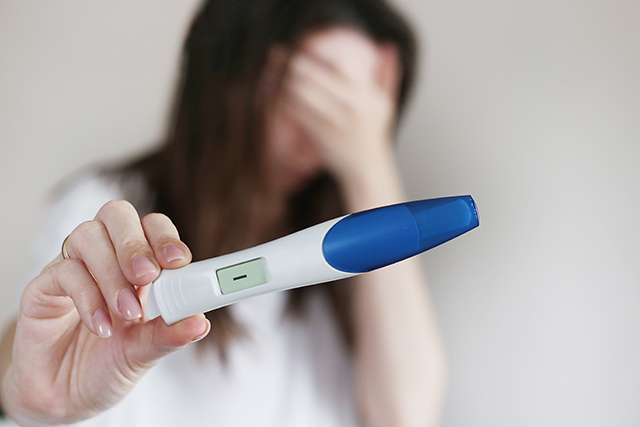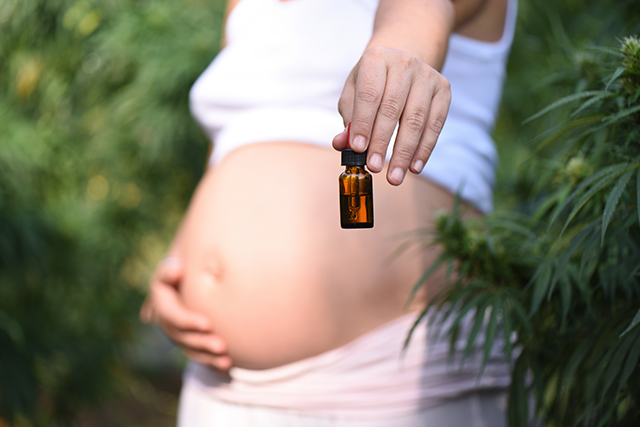Interactions between Fertility Medication and Cannabis
Although cannabis is generally considered safe for consumer use, some certain conditions and circumstances require insight from a medical professional to determine if cannabis use is appropriate. This includes women taking certain fertility medications and actively trying to conceive.
Common fertility treatments and medications can be undermined when used in conjunction with cannabis. Before using any cannabis or THC product, women on fertility medications should consult with their doctor to fully understand any potential interactions.
Common Fertility Conditions and Medications

For women with infertility issues, doctors may prescribe fertility medications that work by promoting the release of hormones that trigger or regulate ovulation—the release of an egg from the ovaries.
Even if you already use another method to boost your chances of getting pregnant, such as in-vitro fertilization, fertility drugs are still an important part of treatment.
Infertility issues are typically broken into one of two categories:
- Primary: A woman who has never been pregnant and cannot conceive after at least one year without using birth control.
- Secondary: A woman can’t get pregnant again after previously having at least one successful pregnancy.
There is a wide range of risk factors that can have an influence on fertility, including age, weight, underlying health conditions like diabetes, radiation therapy, and lifestyle factors like smoking, alcohol consumption, and diet.
Fertility Medications
There are many fertility treatments and medications available, but here are some that are most commonly prescribed:
- Clomiphene citrate – Causes the hypothalamus and pituitary gland to release hormones that trigger the ovaries to make eggs. Brand names of clomiphene citrate include:
- Clomid
- Serophene
- Milophene
- Injectable Hormones – If clomiphene citrate on its own doesn’t work, doctors may recommend injectable hormones to trigger ovulation. Commonly prescribed drugs include:
- Novarel
- Ovidrel
- Pregny
- Profasi
- Bravelle
- Fertinex
- Follistim
- Menopur
- Factrel
- Lupron
- Antagon (ganirelix acetate) – An injected drug that can prevent early ovulation in women who are having fertility procedures.
- Dostinex (cabergoline) and Parlodel (bromocriptine) – Taken orally, these medications are used to lower certain hormone levels and reduce the size of pituitary tumors that can cause ovulation troubles.
Cannabis and Fertility

Up to now, the relationship between cannabis consumption and fertility medications remains largely understudied. However, there is some research to suggest that cannabis consumption while trying to conceive may have a significant negative effect on fertility. In a 2019 study of 421 women undergoing fertility treatment, pregnancy loss occurred in 54% of cannabis users and 26% of non-users. Two other studies have observed that cannabis users had lower egg yields and fertilization rates.
There is little research on the interactions between specific fertility and cannabis. Doctors continue to recommend that anyone trying to conceive or already pregnant should abstain from the use of cannabis products.
What about Birth Control?
Research that links interactions between birth control treatments and cannabis remains sparse, but each has individual risk factors that could be exacerbated when taken simultaneously. Hormonal birth control raises the risk for cardiovascular disease and stroke and can increase blood pressure. THC, the primary psychoactive compound in cannabis, can also raise blood pressure and increase your heart rate. If you have a heart condition, this can be cause for concern, and you may want to avoid smokable forms of cannabis if taking hormonal birth control medication.
Consult a Medical Marijuana Doctor
Don’t take risks with something as important as fertility issues. If you have questions about alternative health treatments or cannabis use, get in touch with a physician that can help you make the right decision. Heally makes it easy to connect doctors and patients through our telehealth platform. Schedule your appointment today.

